144 pieces: An interview with Sara Lopez of A--Company
Culture — 06.12.19
Interview: Patricia Ellah
Portrait and Studio Photography: Courtney Yates
Presentation Photography: Jac Martinez
144 Photography: Jenna Westra
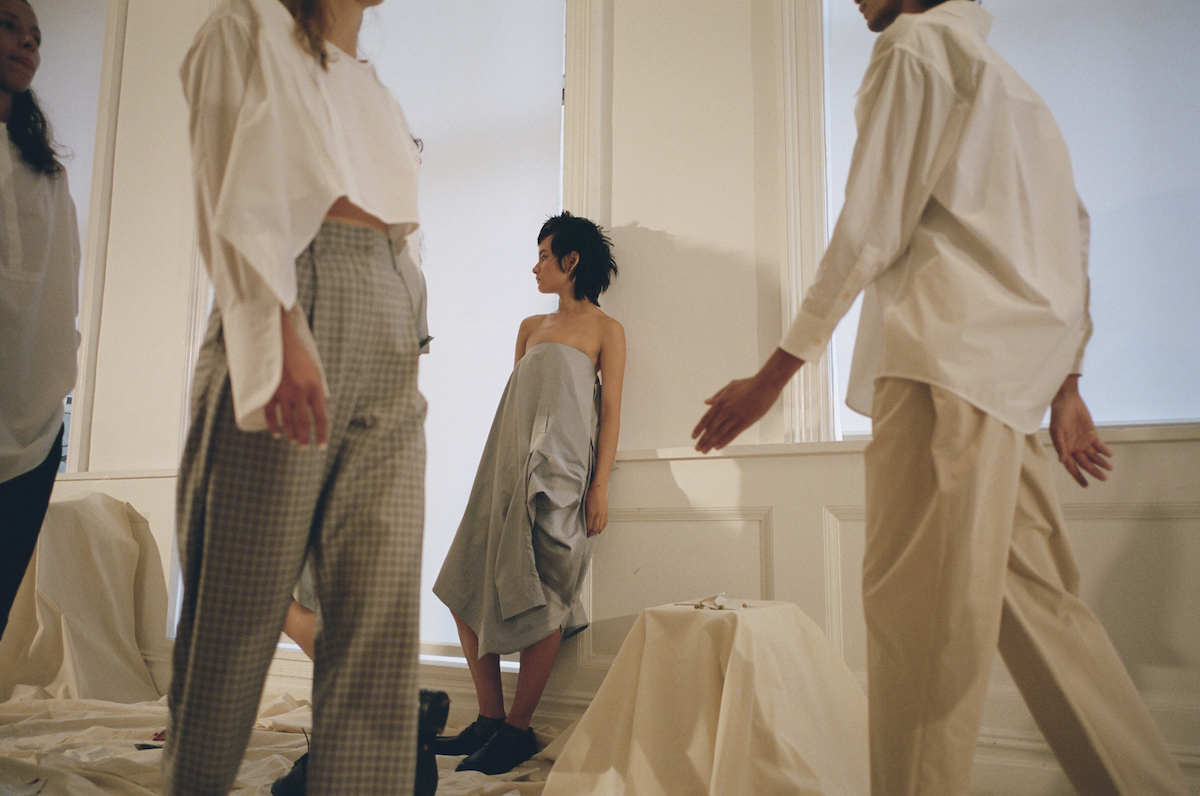
A–Company Season III presentation. Photo by Jac Martinez.
A–Company is a new conceptual fashion clothing line that started just last year. Sara Lopez, the owner and designer, sits down to talk to us about her company, and its production limit of 144 pieces per item. She also discusses her book collaboration with photographer Jenna Westra, book designer Jessica McGowan, stylist Shayna Arnold, and casting director Roxanne Doucet. The book titled A–Company was released in the summer and was placed around the city as a discoverable item to newspaper stands and bookstores.
When introduced, Sara Lopez’s education and time spent building a career are highlighted the most. She has worked under the mentorship of designers and seamstresses for well known and well-celebrated designers ranging from Yohji Yamamoto to Anne Valérie Hash to Saint Laurent, and then finally spent four years as a designer for Rachel Antonoff. A–Company is finding popularity quite easily, it has been featured in Elle Magazine, Flaunt, The Coveteur, Metal Magazine, Wallpaper, and a cult favourite Document Journal.
The south Texas-born designer speaks on the influence of Paris on her clothing line and how New York is functioning as the brand’s base. Speaking with Lopez on A–Company is exhilarating as she merges writing with fashion, she knows what she wants and she is not afraid to define her brand outside of the status quo. A–Company’s first season deconstructed the trench coat, here she talks to us about their second season of deconstructing the suit and reinterpreting classic designs for our time.
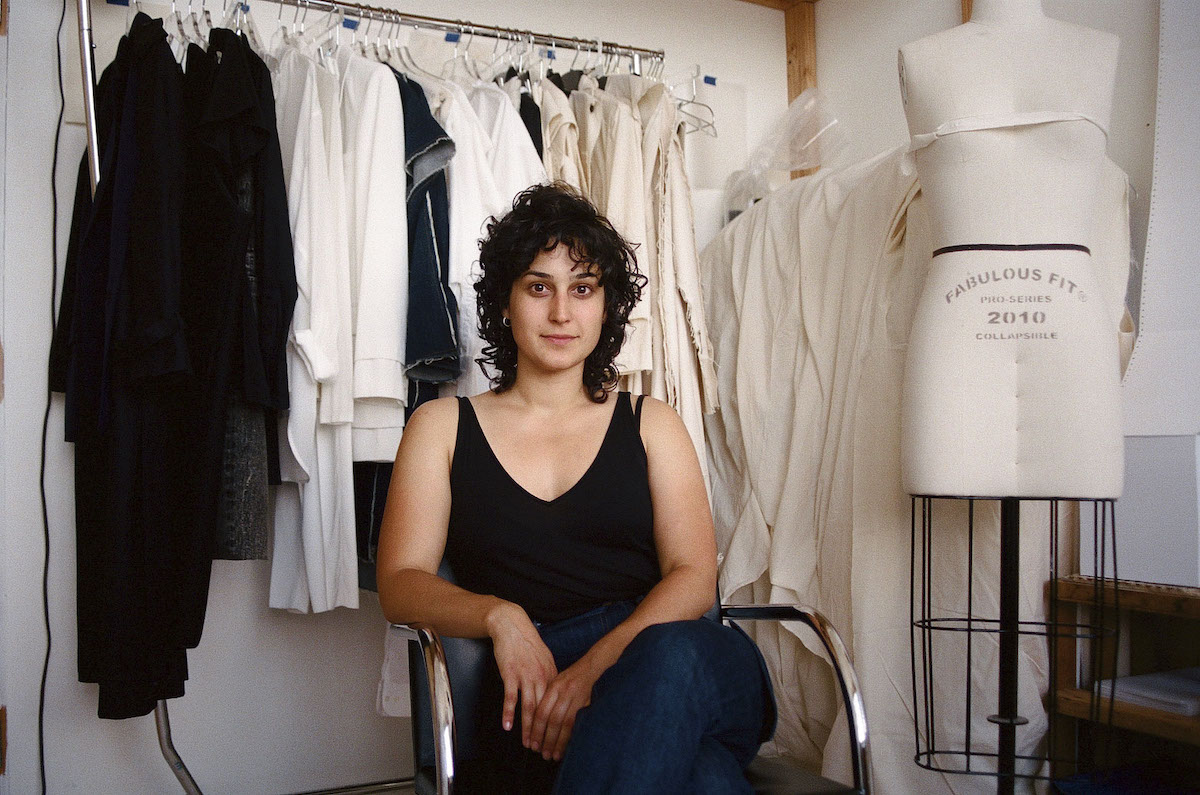
Founder and designer Sara Lopez in her NYC studio. Photo by Courtney Yates.
Patricia Ellah: Why did you put a cap on the number of pieces produced and sold by A–Company?
Sara Lopez: In the fashion industry, there is a lot of excess stock that never gets sold and too much unnecessary waste. Seeing so much developed and produced and then discarded made me consider putting a limit on how much we would produce per style. Deciding to focus on longevity, we chose to only produce 144 pieces per item. Realistically, the number 144 can keep A–Company going as a business while still giving weight to each piece. I have a bit of a fascination with the number 4. For me, it’s a lucky number, since I was young, and one I find aesthetically nice. It’s important to me that we limit our consumption. It’s easy to get caught up in the potential of one successful item that garners a lot of attention and attracts a large buy but I hope to remain more responsible to our environment. Even with the book, it made sense to keep it as an edition of 144 as though it were an item from the collection. I wanted it to feel like an extension of the clothing line, as a tangible circulating object in itself, similar to clothing.
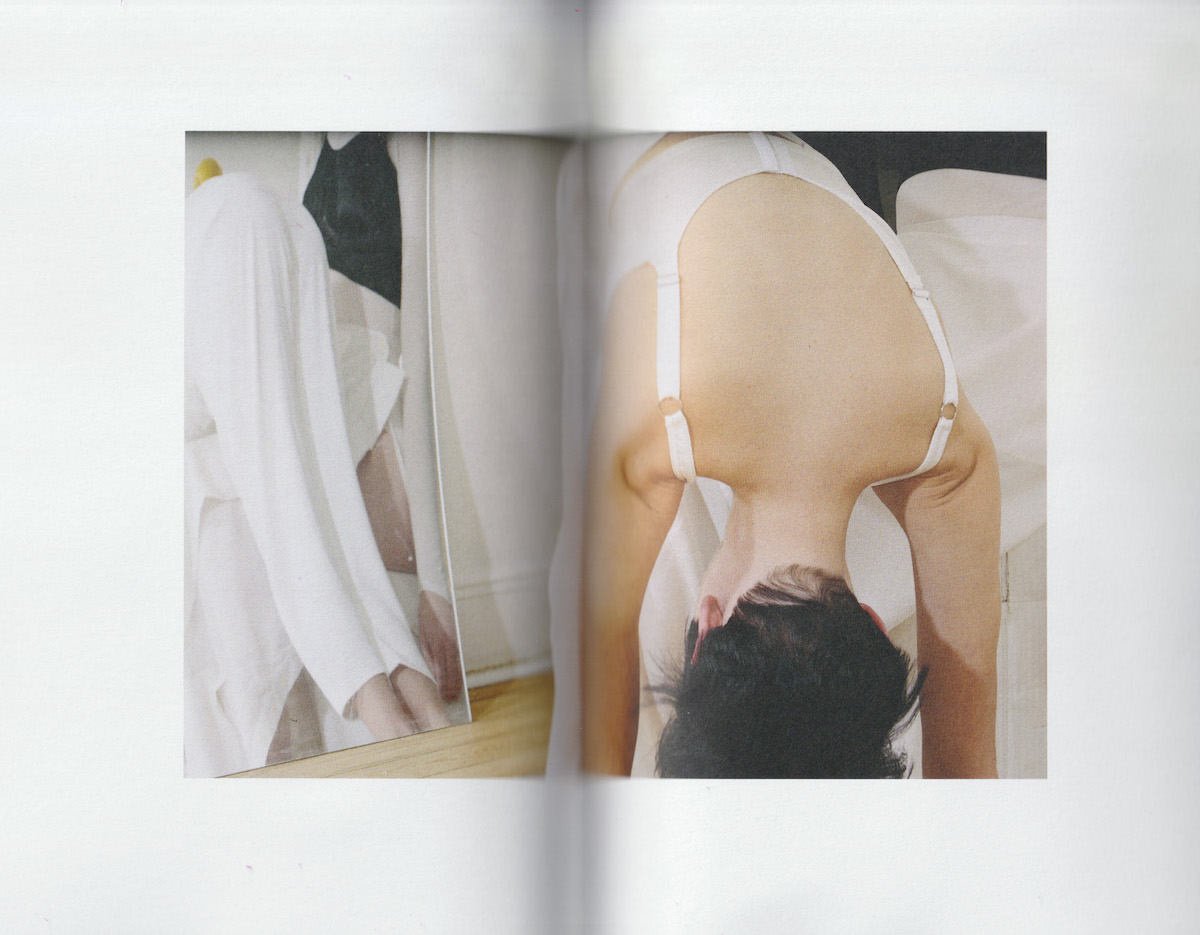
A spread from A–Company’s book, 144.
What was the process of collaborating with Jenna Westra on the new book?
Jenna was a really special find. Usually, when I am looking for inspiration I do a lot of walking. On this day, I happened to walk into a store and found Jenna Westra’s Atlas book which I fell in love with and carried around with me for probably about a week. I had this idea of making a more discoverable photo book, which is why we put it out for free in different newsstands and stores around the city [New York City]. We wanted people to be able to find it and have a moment with it.
Jenna’s photo work comes from a similar sphere of how I approach clothing, so I reached out to her. Her work reminds me of the era of post-modern performance and dance, choreographers like Trisha Brown and Yvonne Rainer come to mind, to me Jenna takes some of those theories into how she approaches photography and performance. We soon got coffee and clicked right away. It was super quick how we put everything together.
We worked on casting together with Roxanne Doucet who is truly wonderful. Then when thinking about location Sara Burns was the natural choice. She is an incredible artist, sculptor, and space maker. She also does interior and furniture design and worked on the furniture pieces for our first presentation. Her home is this intimately curated, artful space and she was kind enough to let us shoot there. We wanted to discover through images of how bodies exist in domestic spaces with clothing. The shoot was seamless. We gave Jenna space to work, the crew and I were on the other side of the house. We let her be with the models. I wanted her to have the space to make chance images, purposeful but accidental, to explore and try out ideas without having to care about what our presence in that space meant. She is waiting for those moments that an arm flies somewhere unexpected, this is something that I love about her work, you’re not sure what is chance or deliberate because it permits so much more information outside of the frame. It was a really rewarding collaboration.
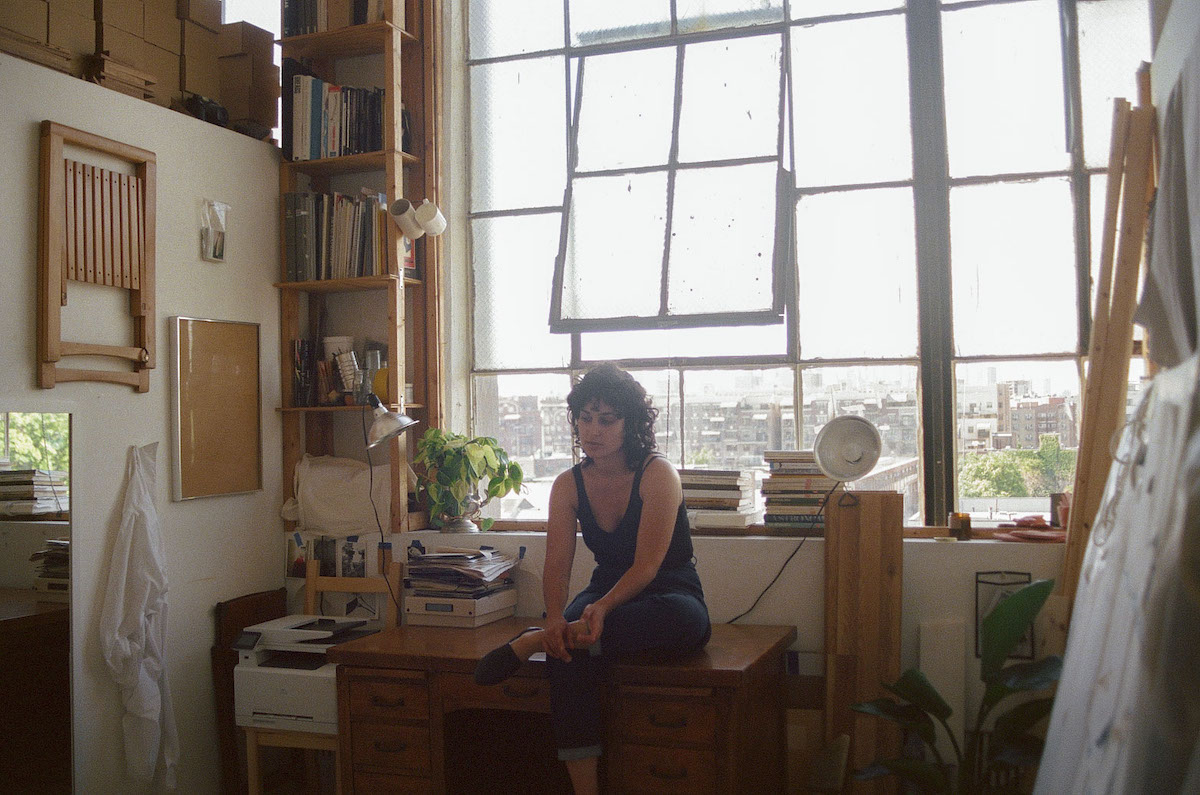
Founder and designer Sara Lopez in her NYC studio. Photo by Courtney Yates.
Did you have any fears when you started A–Company?
I was worried about all of it! It was extremely terrifying. It’s scary doing anything you believe in and have been waiting a long time to execute. There was so much anxiety, fear, doubt, everything you would imagine. Are they going to like it? Is it important? Do we need more clothes? Do we need this brand? And why? Of course, it’s all normal but I am happy to be passed that part, it is out, and am now working with it, this living breathing thing. I chose to keep listening to the urgency to create and to be more specific about what I wanted to create. I decided to try to do it the best way that I know how and will continue to always try to give something good and important to the world.
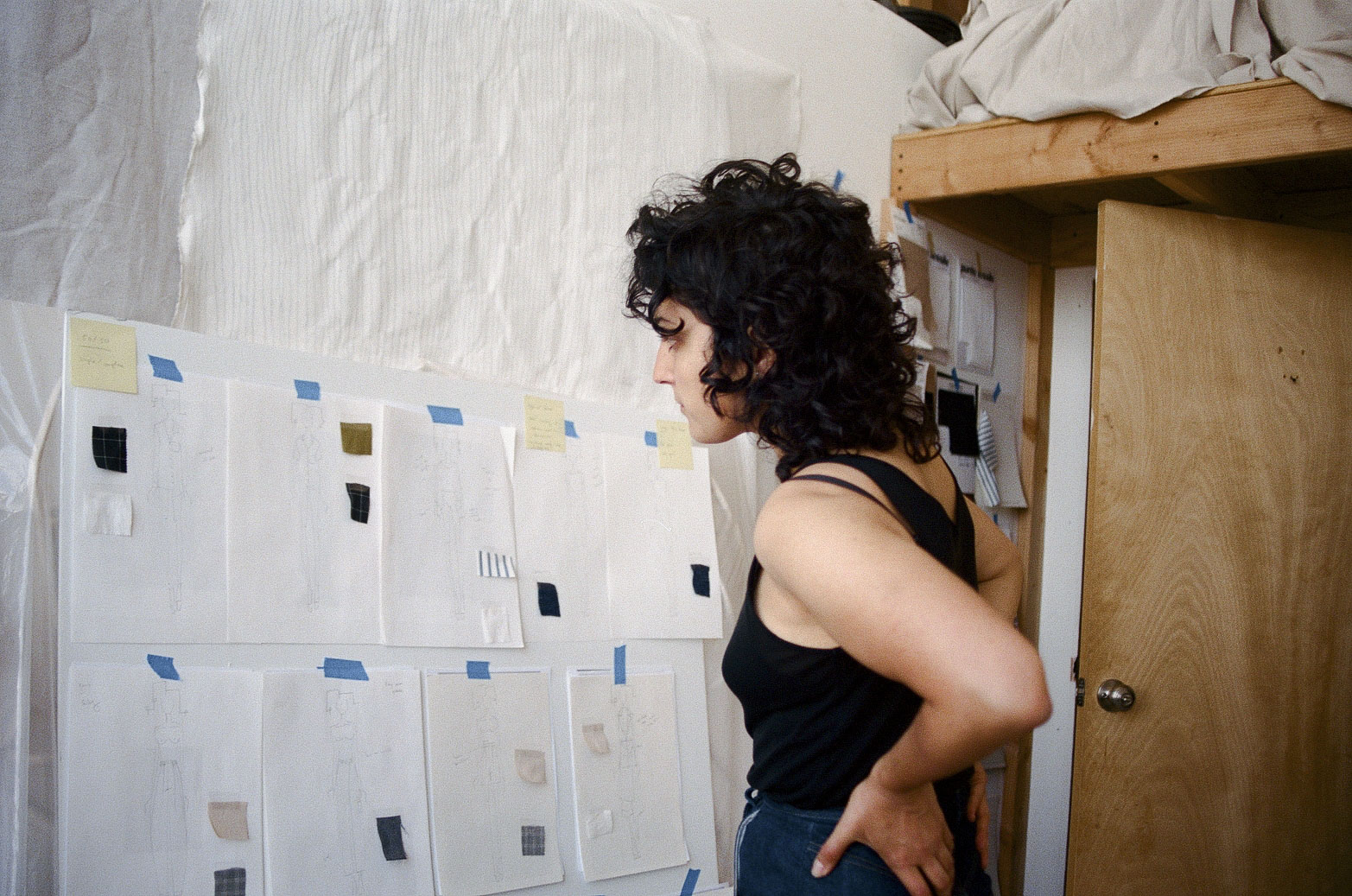
Photo by Courtney Yates.
What is your design team like?
I do all the designs for the collection, but I work with some truly talented pattern makers in the NY Garment District, who help execute them. Part of my main goal with A–Company is to give voice to all the many hands that go into the making of the brand. They are absolutely essential and apart of the brand even if it’s in small ways. We have all the sampling and production made in the NY Garment District and are incredibly grateful to all the people you take part in helping make A–Company.
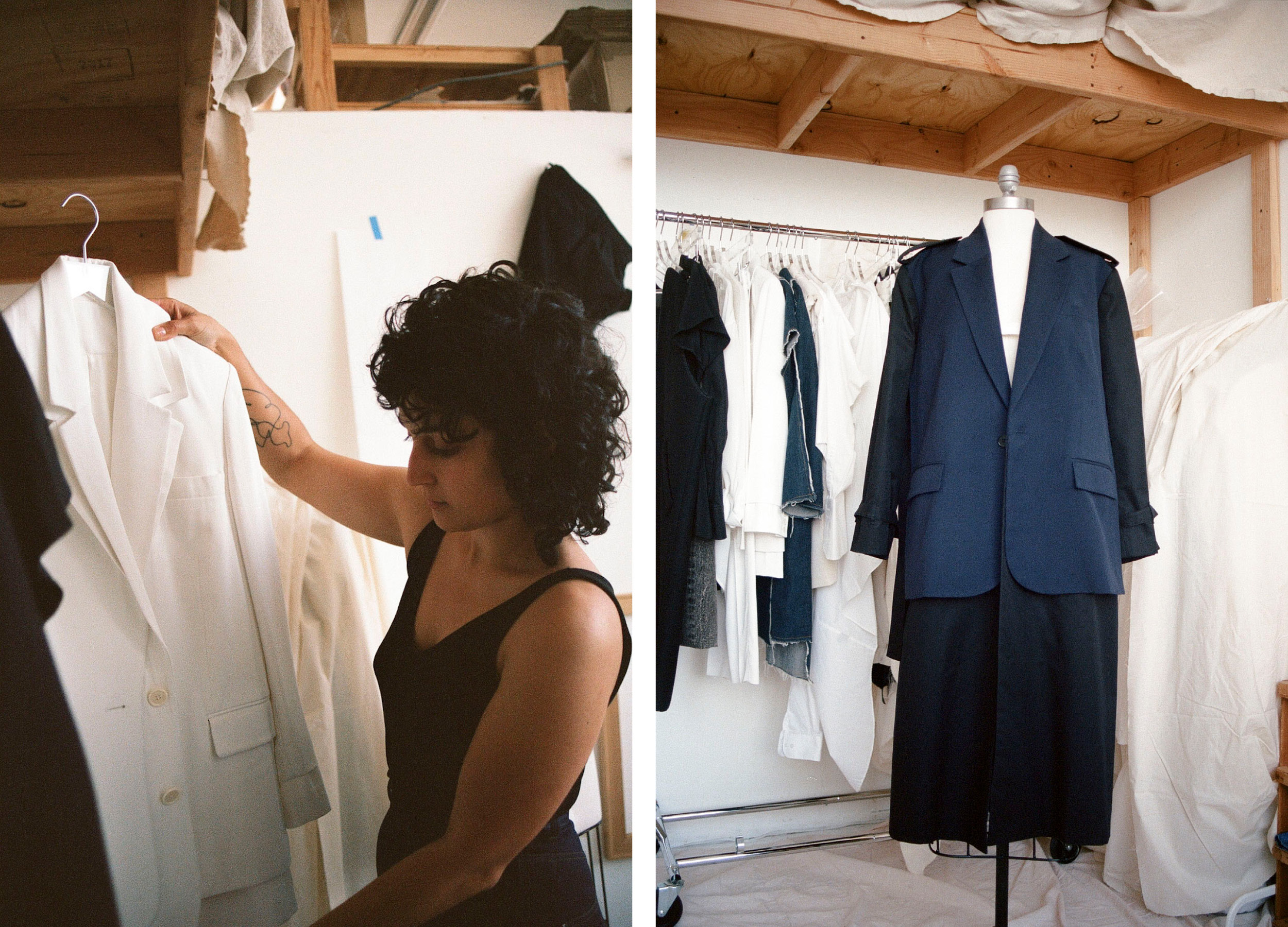
Founder and designer Sara Lopez showing pieces from A–Company’s Season II collection. Photo by Courtney Yates.
Did you think about the suit in the context of today’s society when you chose it for your second collection?
Looking at the historical context, the 1980’s suit really intrigued me: a time when women were wearing a suit almost as protection for a largely male business world. But today, the suit feels more like a unisex piece. That’s what I find interesting about menswear; how universally unisex it is becoming. A dress isn’t there yet, we haven’t all adopted womenswear as our own, but we should! When referring to the collections, I prefer to call them women-leaning, they definitely sway heavier in that direction in terms of what we see as traditionally feminine silhouettes, but it’s not strictly for women; I love seeing all bodies in the clothes.
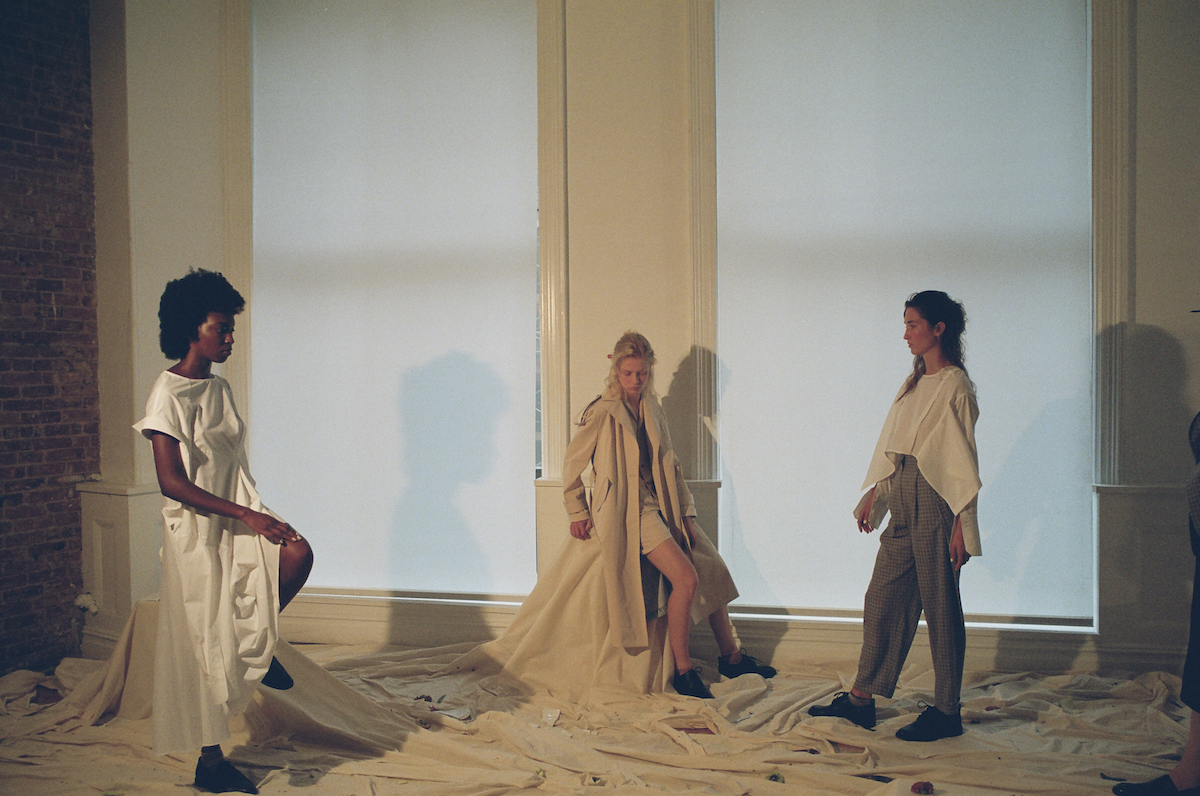
A–Company Season III presentation. Photo by Jac Martinez.
How does choosing sustainability affect A–Company?
We focus first on the longevity of the clothing and try to be very mindful where we source our materials from, making sure that all of our vendors are working with traceable materials and aren’t putting harsh chemicals into the environment. We also pay attention to the facilities and how much recycled water they’re using, and renewable energy. Sustainability is necessary for moving forward in the fashion industry and we try to remain as conscious as possible with the items that we put out.
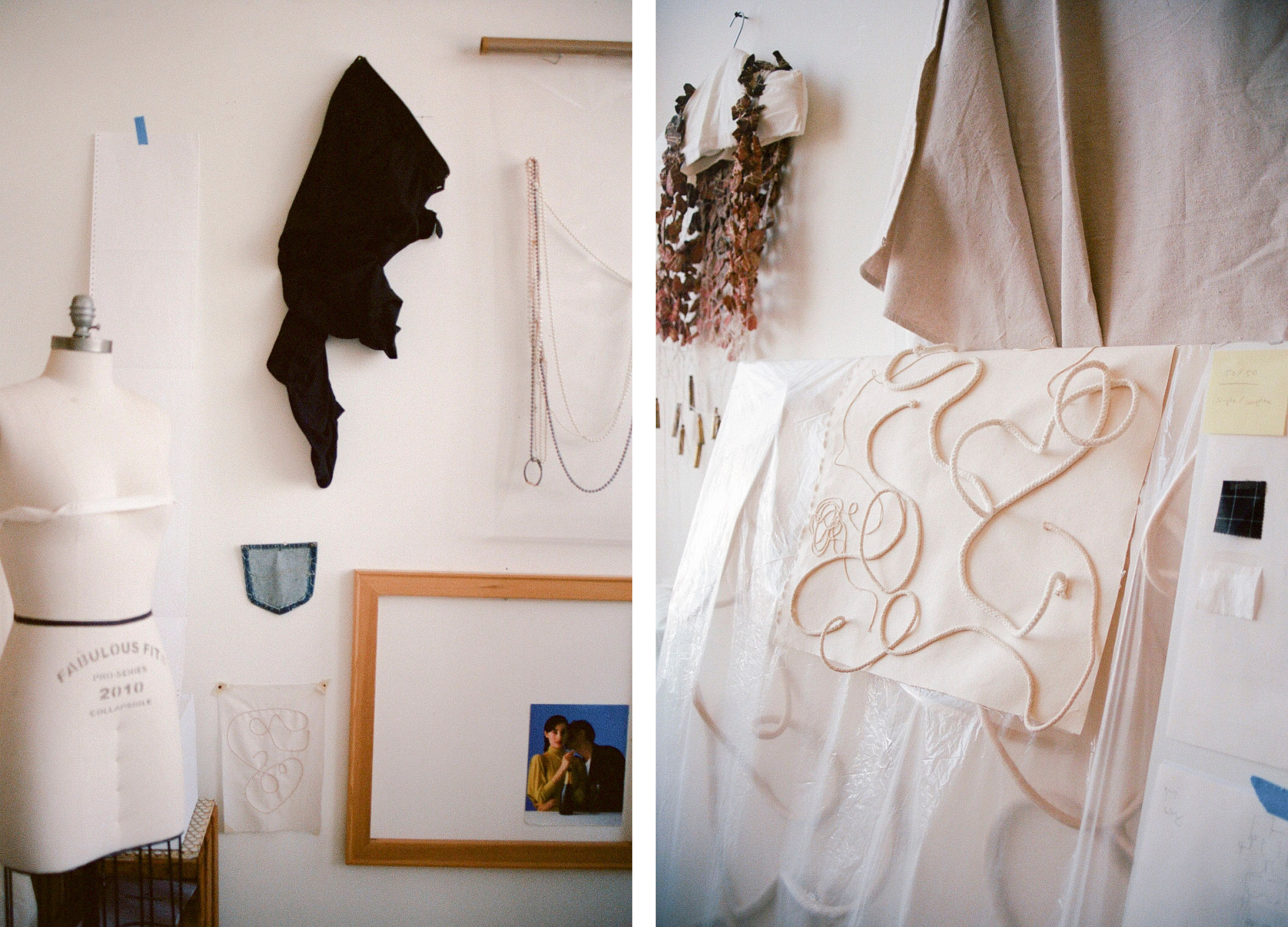
A–Company’s NYC studio. Photo by Courtney Yates.
When you were creating A–Company what were the brands that you put on your moodboard? Did you have anyone else at the back of your mind?
Some of my hero brands are obviously Maison Margiela, Comme des Garçons, Jil Sander, Ann Demeulemeester, Yohji Yamamoto, and the avant-garde movement. I think right now I am constantly inspired by newer brands, brands that have been around for only a couple of years, just watching what other people are doing, seeing how many people are constantly challenging and changing things. One of my favourites who’s been around for a while is Mary Ping’s Slow and Steady Wins the Race, I really respect what they do. It’s a conceptual line, but accessible; they were in the MoMa last year for the ‘Items: Is Fashion Modern?’ show.
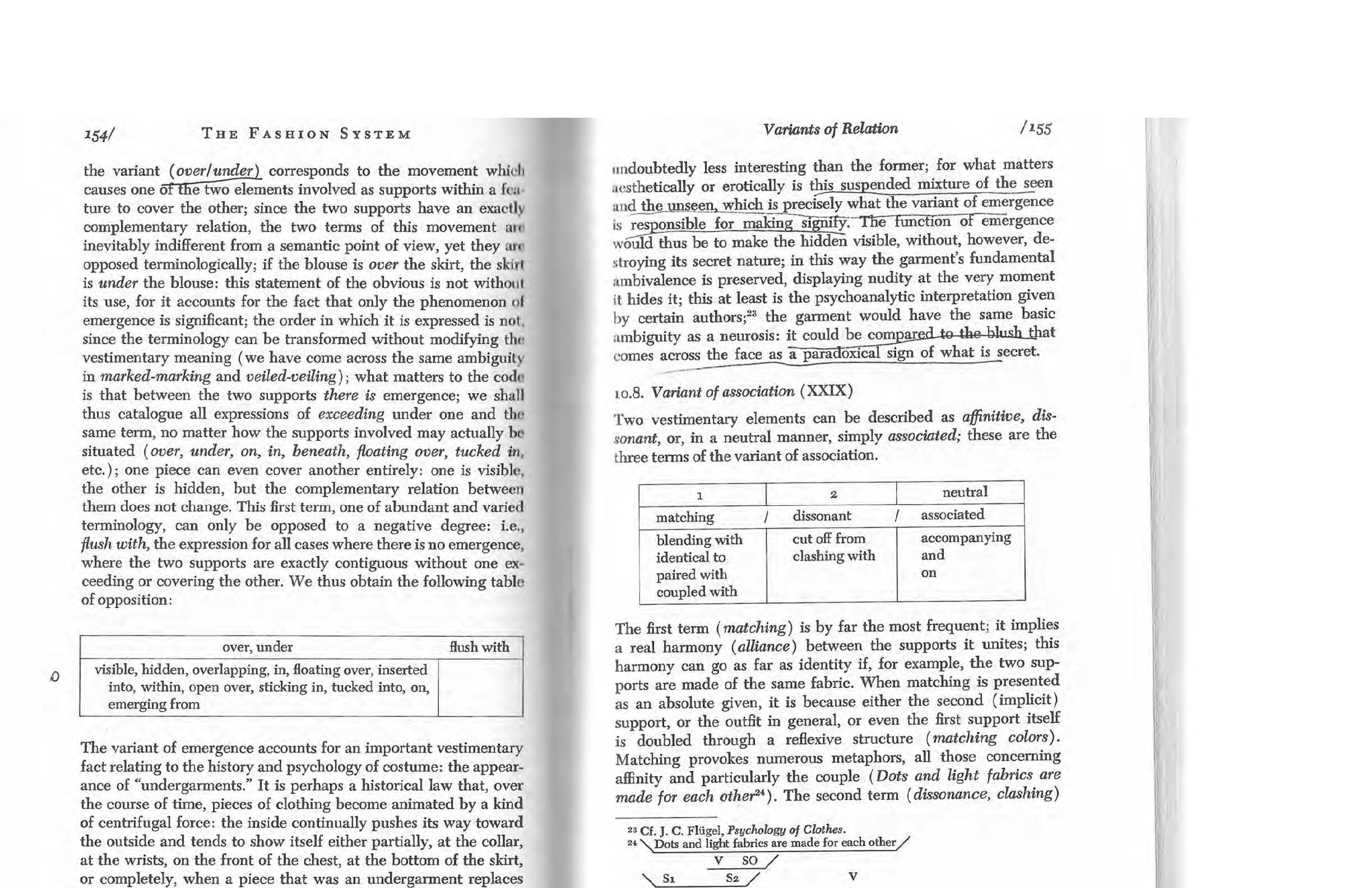
A spread from A–Company’s Season II lookbook.
You tend to draw a lot of inspiration from writers and merge fashion with writings, tell me more about why this is important to you.
I get a lot of inspiration from writers, especially philosophy and theory. And especially when that writing relates to the body and clothing like Roland Barthes who has written about clothing and fashion and the industry. These are areas that maybe some people were introduced to in school, I don’t know if everyone gets it or wants to but I feel that there are a lot of good words out there. I wanted to share that and also pair these two together because it felt important and needed, or at least for me, in order for us to move forward and a way into something new. In trying to create a different kind of industry we need to look back at writers and see what they were saying and how we can try to move those conversations forward that very much pertain to our existence today.
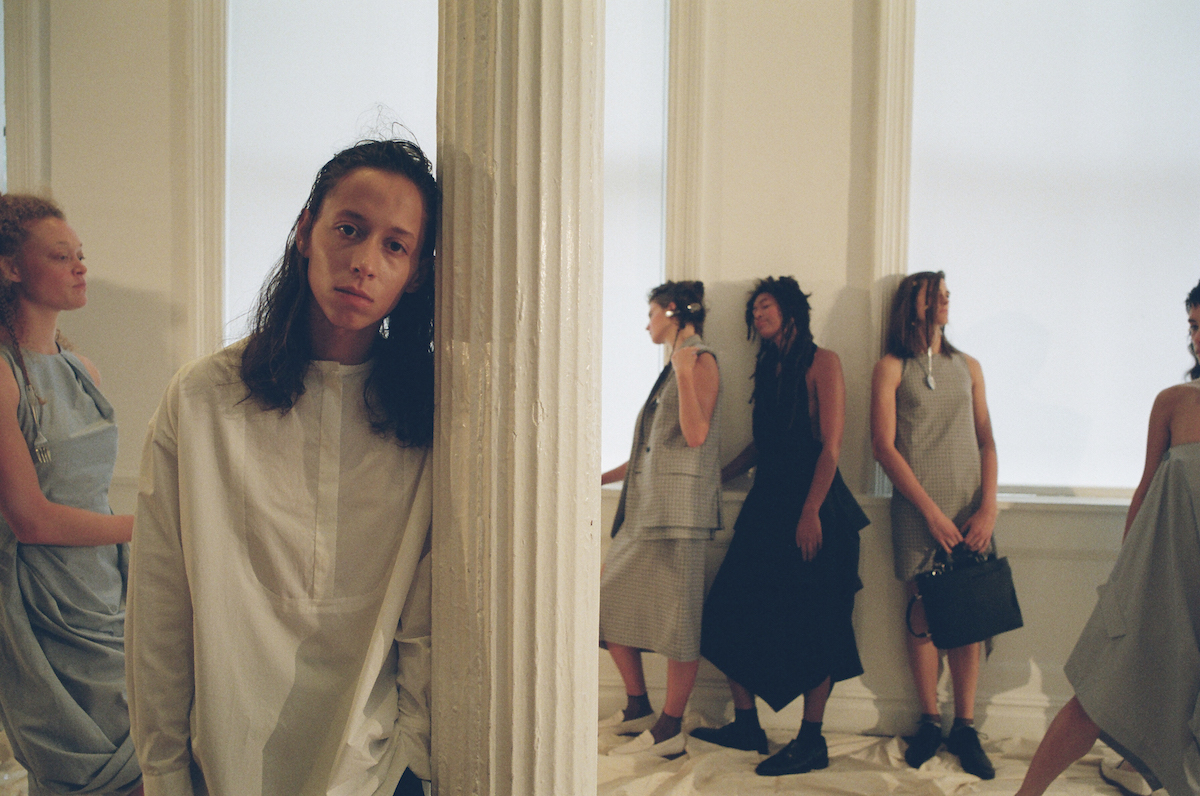
Season III presentation. Photo by Jac Martinez.
Has moving to New York affected your brand?
It definitely made it possible to start the brand. But, the first seed for the brand was planted in Paris while I was studying there. My mentors came from Anne Valérie Hash and Yves Saint Laurent and very much helped to unlock something within me. There was a freedom I found. I think that’s when I started thinking about creating A–Company. Those ideas that started in Paris while I was studying there and whatever happened during those experiences are still with me, and they have continued to grow until last year everything finally fell into place.
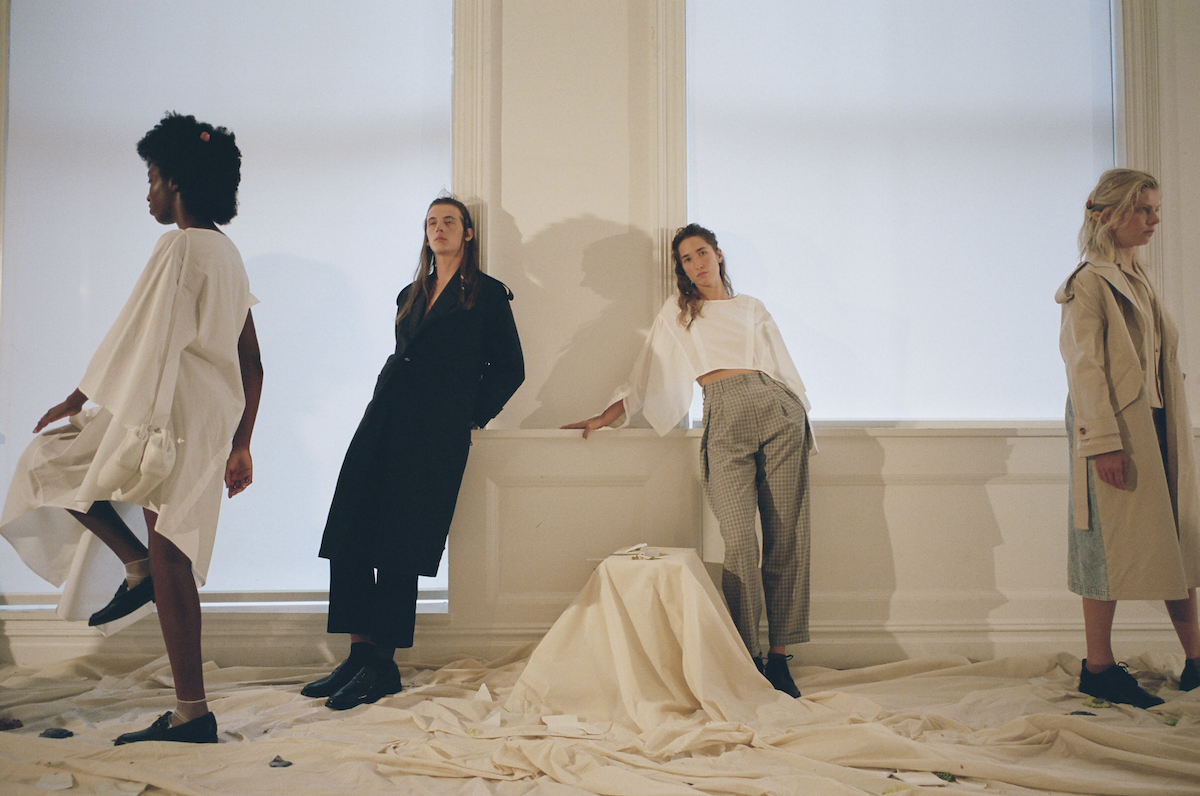
A–Company Season III presentation. Photo by Jac Martinez.
To stay up-to-date with A–Company, click here.
To shop A Company, click here.
The 144 limited edition books are available in select newsstands and stores around New York City and at a–company.com